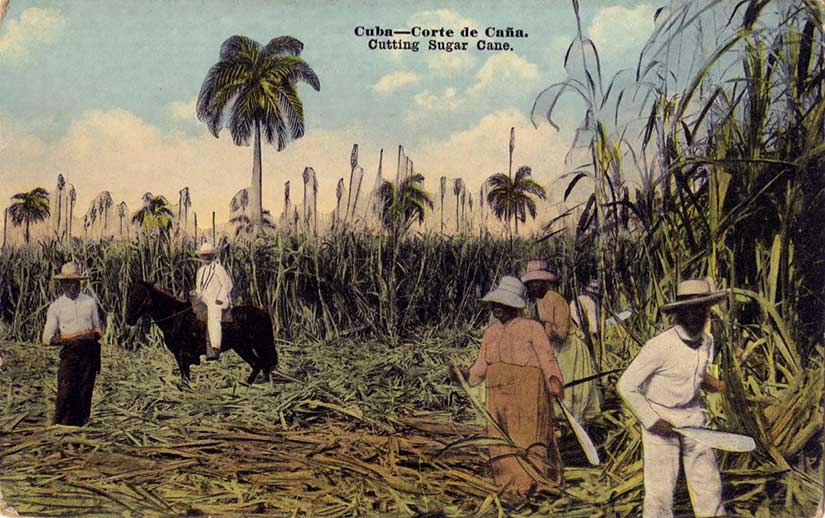Peyton O’Laughlin
Firstly, Giovanny discussed the Venezuelan migrant crisis. Important highlights of this project were xenophobia that accompanies mass migration incidents as well as the political and economic factors that occur from this situation. Through this news event, Giovanny called upon the theme of “Americanos” and nativism during the Latin American wars of independence in comparison to rhetoric regarding the Venezuelan migrant crisis, “Somos planas.”
Next, we narrowed our historical focus to neocolonialism in Latin America from the late 19th century to the Great Depression. The main topic of focus was defining neocolonialism and how this historical facet affected the lives of Latin American people. A large portion of the class revolved around examining photos of Latin American workers under neocolonial as primary sources. Importantly, this activity provided us to think critically about the cultural, political, and economic factors that shaped the lives of Latin American people during this period. Not only were Latin American people affected, but their economic structures were altered due to foreign influence. Likewise, Latin America experienced a large influx of European immigrants, this resulted in continued cultural changes and a shift in political ideologies, liberalism to consolidated authority and oligarchies. Finally, through the photos, we discussed familial, socio-economic, and racial dynamics of the world of work, mainly agricultural, in Latin America during the period. This last piece of the class was largely developed through observations of clothing, how individuals were placed in photos, the type of work that was being represented, racial tones, types of agricultural or natural resources, and the locations the photo presented.
In terms of understanding neocolonialism, from the neocolonizers perspective, one can take precedence from Woodrow Wilson’s Mobile Speech (1913). Through Wilson’s speech, one can observe the views and sentiments of the United States towards Latin American countries under neocolonialism. Wilson details how Latin American countries were apt to foreign, mainly the United States, the influence due to their lack of industrial development. Latin American countries vied outside the limits of utility to the world economy and this ideology was the justification for imperialized invasion and economic control by the United States during neocolonialism.
Key terms
- Neocolonialism: the use of economic, political, cultural, or other pressures to control or influence other countries, especially former dependencies.
- Oligarchy: a small group of people having control of a country, organization, or institution.
- Debt Peonage: a system where an employer controls the physical and economic mobility of a worker by limiting their access to supplies not sold by the owner which results in a burden of debt to the worker.
Reputable Sources
- https://www.iep.utm.edu/neocolon/
- The Emergence of the Neocolonial Order (1850-1880): John Charles Chasteen
- http://www.alternautas.net/blog/2015/11/5/strategic-ethnicity-nation-and-neocolonialism-in-latin-america
Questions
- What was the justification for the economic intervention of Latin America by foreign influences?
- Briefly describe the system of Debt Peonage.
- Explain why a Latin American country under neocolonial rule would produce low-cost exports?

Leave a Reply